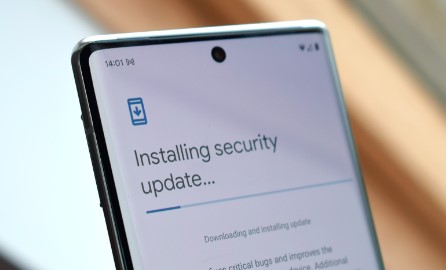In the dynamic realm of mobile gaming, the battle between Android and iOS platforms continues to captivate users worldwide. This exploration delves into the nuances of Android games versus iOS games, dissecting the strengths, weaknesses, and evolving landscapes that define the ongoing competition for supremacy in the mobile gaming industry.

The Android Advantage: Diversity and Accessibility
One of the defining strengths of Android games lies in the platform’s openness and diversity. The Google Play Store boasts a vast array of games catering to all genres, tastes, and demographics. This diversity not only provides users with an extensive selection but also ensures accessibility for a global audience. Android games are available on a myriad of devices, from budget-friendly smartphones to high-end flagship models, offering inclusivity in the mobile gaming experience.
iOS Precision: A Unified Ecosystem
While Android prides itself on diversity, iOS games thrive on the precision of a unified ecosystem. Apple’s tightly controlled hardware and software integration ensure a consistent and optimized gaming experience across all iOS devices. This cohesion allows developers to fine-tune their games for a specific set of devices, resulting in a seamless and visually stunning performance on iPhones, iPads, and iPod Touch devices.
Development Challenges: Fragmentation vs. Optimization
For game developers, the choice between Android and iOS involves navigating different sets of challenges. Android’s openness and device diversity introduce fragmentation, requiring developers to cater to a multitude of screen sizes, resolutions, and hardware capabilities. On the other hand, iOS’s unified ecosystem simplifies development but comes with its own set of challenges, including stringent app store policies and a more controlled development environment.
Monetization Models: In-App Purchases and Ad Revenue
Monetization strategies significantly impact the mobile gaming landscape. Android games often leverage a freemium model, where the game is free to download but offers in-app purchases for enhancements or additional content. This model thrives on a larger user base. Conversely, iOS games tend to generate higher revenue per user, thanks to a user demographic more willing to spend on premium games upfront.
Gaming Community and Social Integration
Both Android and iOS platforms recognize the importance of social integration in modern gaming. Android games often tap into the expansive Google Play Games services, offering achievements, leaderboards, and multiplayer functionalities. iOS games, leveraging the Game Center, provide a seamless social gaming experience within the Apple ecosystem. The choice between the platforms often depends on the desired level of social interaction and community engagement.
Exclusive Titles: The Allure of Platform-Specific Games
Exclusive titles serve as a significant draw for both Android and iOS users. Android games often boast a wider selection due to the platform’s openness, with various developers releasing games independently. Conversely, iOS enjoys exclusive partnerships with renowned developers, resulting in high-profile titles debuting on the Apple App Store first. The battle for exclusive titles remains a driving force in the competition for user loyalty.
Device Performance: Balancing Power and Optimization
Device performance is a critical factor influencing the mobile gaming experience. Android’s diversity means games must be optimized for a wide range of hardware specifications, leading to varied performance levels. iOS, with its standardized hardware, allows developers to fine-tune games for optimal performance on every supported device. This results in a consistently smooth gaming experience across the iOS ecosystem.
Augmented Reality Gaming: A Playground for Innovation
The realm of augmented reality (AR) gaming showcases the innovative capabilities of both Android and iOS platforms. ARKit on iOS and ARCore on Android have paved the way for immersive AR gaming experiences. While both platforms support AR games, iOS, with its early adoption of ARKit, has seen the emergence of groundbreaking AR titles that leverage the power of Apple devices.
Security Concerns: App Store Vigilance vs. Openness
Security is a paramount concern in the mobile gaming industry. iOS’s closed ecosystem, stringent app review processes, and curated App Store contribute to a more secure environment. Android’s openness provides flexibility but raises concerns about potential security threats, requiring users to exercise caution when downloading games from third-party sources.
Operating System Adoption Rates: Impact on Game Compatibility
The rate of operating system adoption significantly affects game compatibility and user experience. iOS users typically adopt the latest operating system updates promptly, ensuring a consistent platform for developers. Android, with its diverse ecosystem, faces challenges in achieving widespread and timely adoption of the latest updates, leading to potential fragmentation issues.
Global Market Share: A Balancing Act
The global market share of Android versus iOS devices plays a pivotal role in the mobile gaming landscape. Android’s widespread adoption in emerging markets contributes to its dominance in terms of sheer numbers. However, iOS users, often associated with higher purchasing power, contribute disproportionately to mobile game revenue, highlighting the importance of considering both quantity and quality in the gaming industry.
Developer Preferences: Tools, Languages, and Community Support
The choice between Android and iOS development often boils down to developer preferences. Android developers typically work with Java or Kotlin, utilizing the Android Studio IDE. iOS developers, on the other hand, use Swift or Objective-C within the Xcode IDE. The vibrant communities associated with each platform provide valuable resources and support, influencing the preferences of game developers.
Evolving Technologies: 5G and Cloud Gaming
The advent of 5G technology and the rise of cloud gaming introduce new dimensions to the Android vs. iOS gaming debate. Both platforms are poised to leverage the high-speed, low-latency capabilities of 5G for enhanced multiplayer experiences and seamless streaming. The success of cloud gaming services may redefine the importance of device specifications, potentially leveling the playing field in the mobile gaming arena.
Cross-Platform Gaming: Breaking Down Barriers
Cross-platform gaming, where players on different devices can play together, has become a significant trend. Games supporting cross-platform play are increasingly gaining popularity, breaking down the barriers between Android and iOS users. This trend emphasizes the importance of a unified gaming experience, irrespective of the device’s operating system.
Future Trends: Convergence and Innovation
As technology continues to advance, the future of Android and iOS gaming holds exciting prospects. Convergence between the platforms, driven by industry collaborations or new technologies, may redefine the landscape. Innovations in augmented reality, artificial intelligence, and immersive technologies are poised to shape the next generation of mobile gaming experiences.
Conclusion
The battle between Android and iOS games is a dynamic interplay of diversity, precision, and innovation. Each platform brings its strengths to the table, catering to a broad spectrum of users with distinct preferences and priorities. While Android excels in openness and accessibility, iOS thrives on a unified ecosystem and optimized performance. The ongoing evolution of mobile gaming will likely be shaped by technological advancements, shifting user behaviors, and the industry’s ability to adapt to emerging trends, ensuring that the competition for mobile gaming supremacy remains a thrilling saga for years to come.











